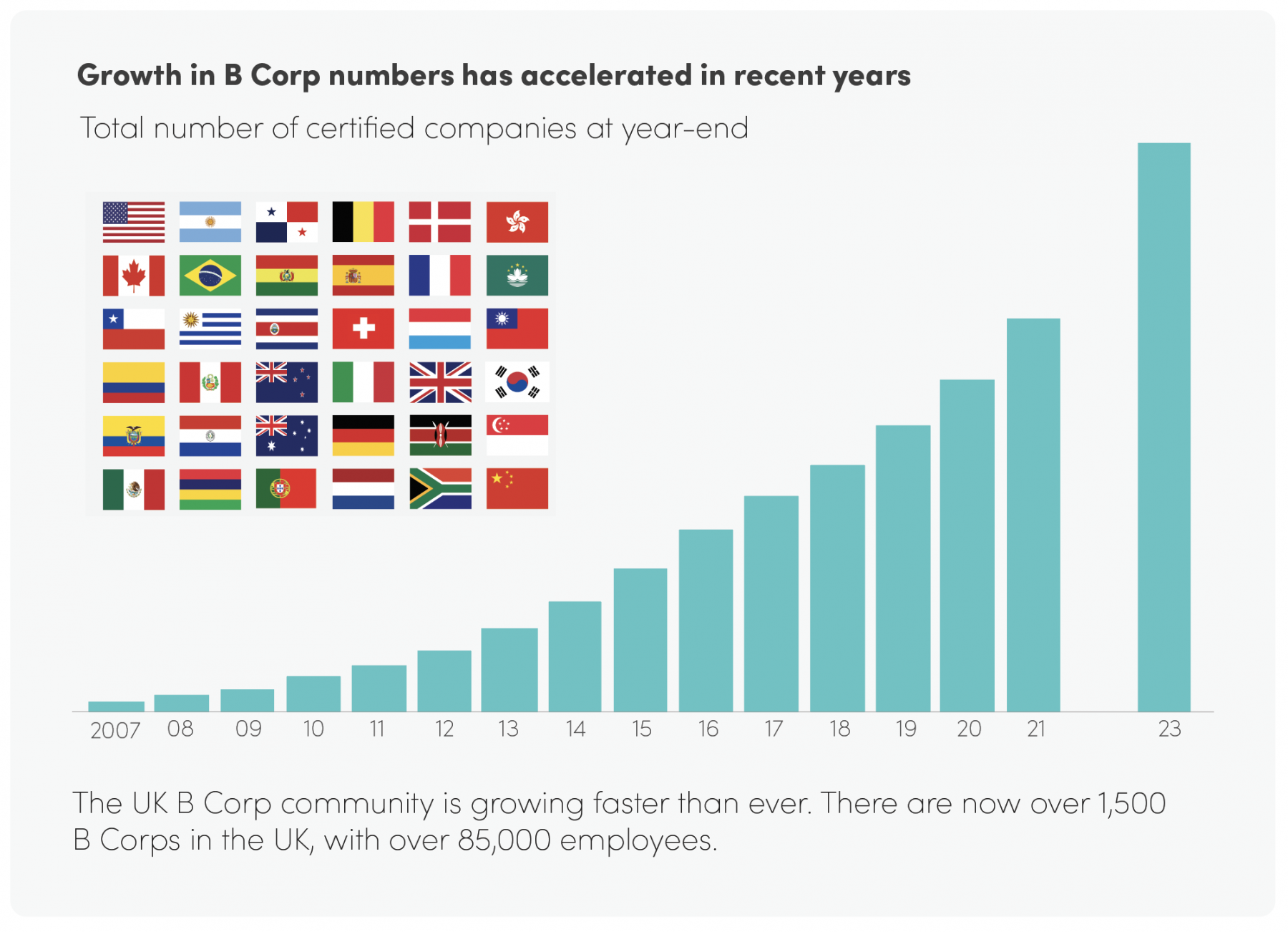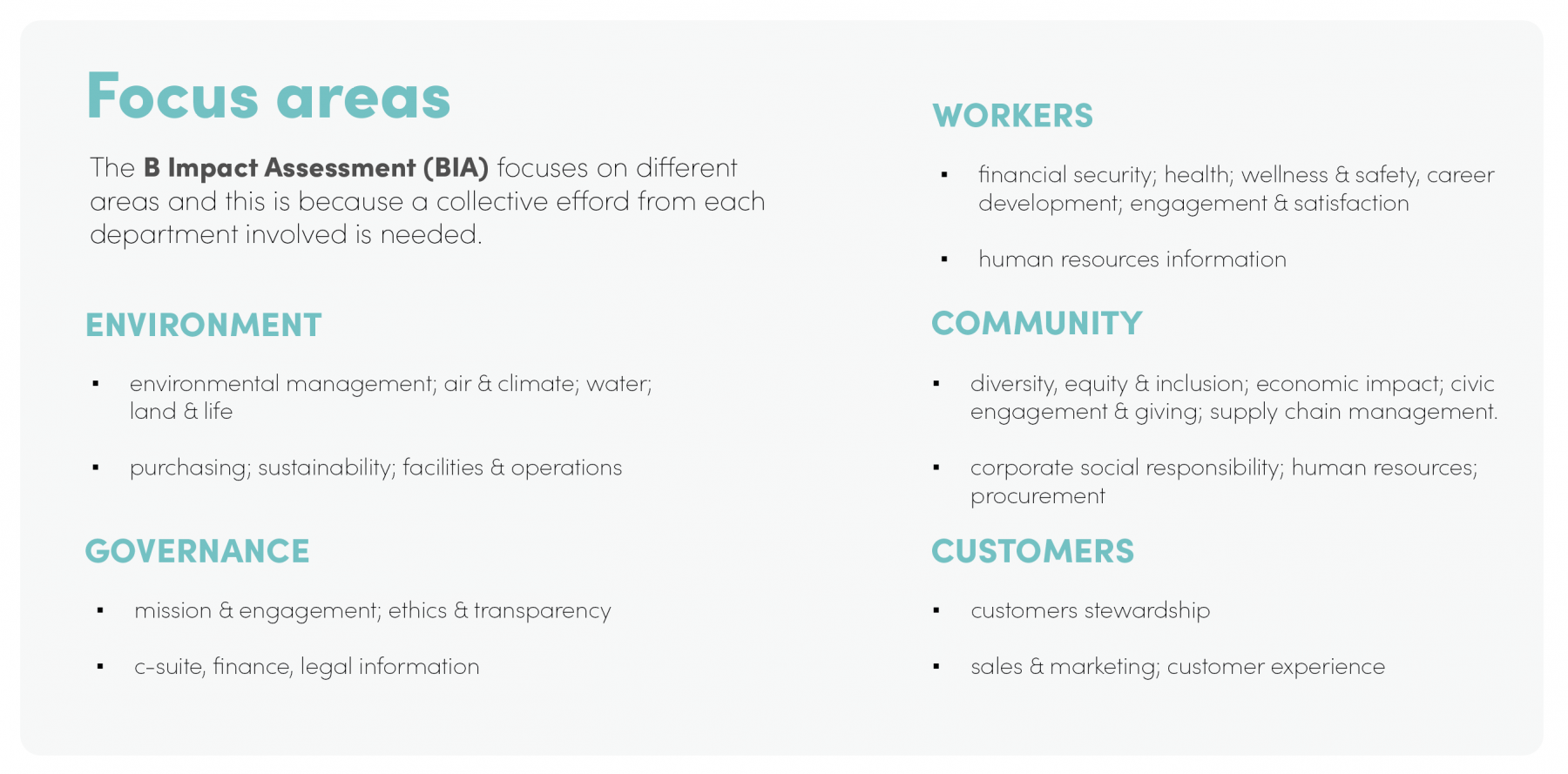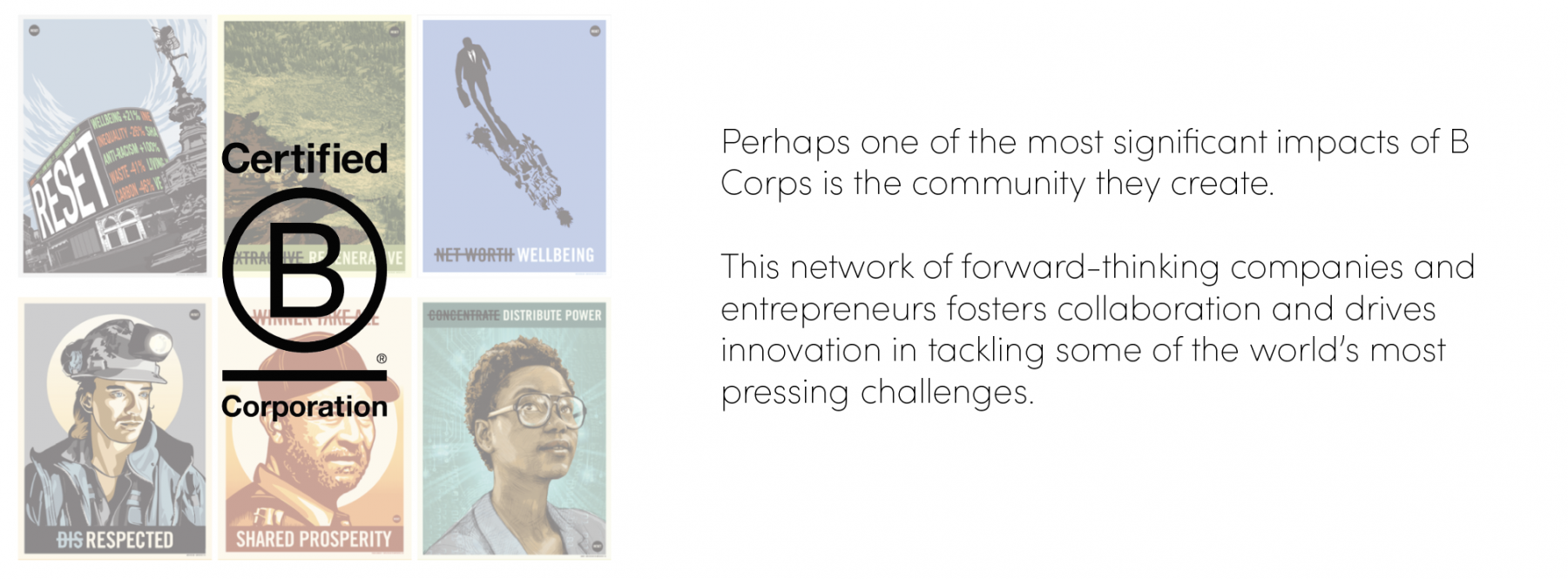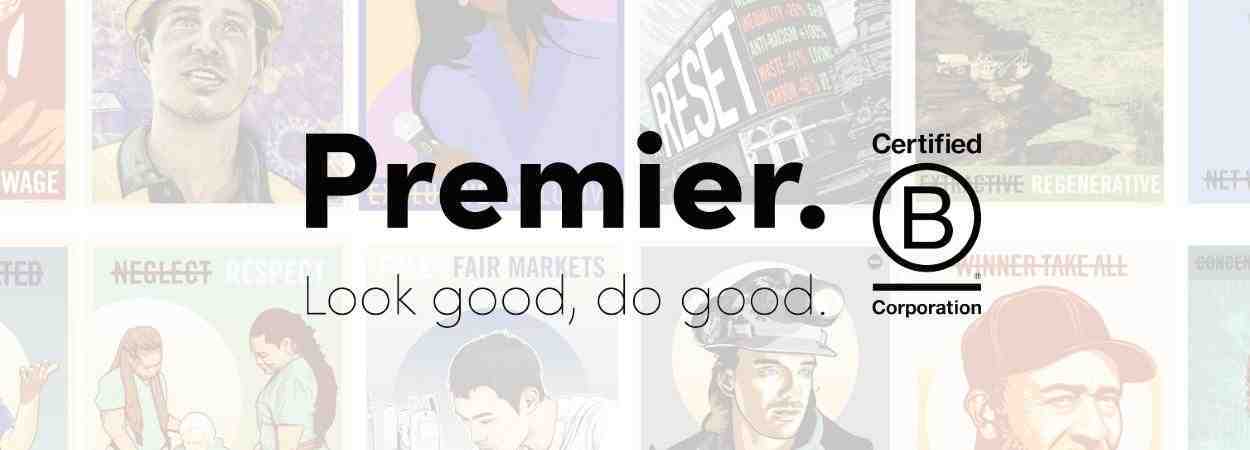The Impact of B Corp
B Lab was founded nearly 17 years ago in the US by university mates Bart Houlahan, Andrew Kassoy, and Jay Coen Gilbert. It is a non-profit network with the ambitious aims of revolutionising capitalism and reshaping the global economy to "benefit all people, communities, and the planet".
The concept of B Corporations, or B Corps, has been gaining significant momentum in the business world.
As of today, the global network encompasses roughly 6,400 certified B Corps, spread across a wide array of 158 industries, ranging from chic fashion brands to innovative fintechs. Initially dominated by smaller enterprises focused on transforming business practices, the B Corp community has now grown to include prominent players in the corporate world. This expansion features renowned entities such as Ben & Jerry's ice cream, a part of the Unilever family, branches of the French culinary giant Danone, the esteemed outdoor clothing company Patagonia, and Natura, the Brazilian leader in cosmetics and fragrances, which is also the parent company of Body Shop and Aesop.

2023 marked a significant turning point for B Lab and the B Corp movement. Amidst the rapidly evolving global landscape, B Lab has been undergoing a transformation to more effectively address the demands of the present times and to ensure that it is adequately equipped to harness the strength of this movement and generate impactful change on a larger scale.
The UK is one of the fastest-growing regions for B Lab with about 1,000 companies at the end of 2022, double the number the previous year and the highest relative to its population in the world. Data from B Lab UK — one part of the global network that sits under B Lab Global, which ultimately provides the certification — shows companies outperform on revenue growth, investment levels and employee retention rates compared with those outside of the community.
B Corps stand out for their dedication to sustainable business practices. They aim to reduce their carbon footprint, use sustainable materials, and focus on reducing waste. This approach not only benefits the environment but also sets a new standard for businesses globally.
By doing so, they're creating a ripple effect, inspiring other businesses to take a more socially responsible approach.
B Corp are required to maintain high standards of transparency and accountability. This rigorous process builds trust among consumers and stakeholders, who are increasingly seeking out businesses that align with their values.

Despite their focus on social and environmental issues, B Corps also make significant economic contributions. They support local economies, create jobs, and often show resilience in economic downturns, thanks to their diversified focus and commitment to their stakeholders.

As the movement grows, B Corps have the potential to influence policies and set new standards in business, contributing to broader systemic changes and promoting regulations that support sustainable and responsible business practices.
In conclusion, B Corps represent more than just a certification; they embody a shift in how businesses operate and their role in society. By balancing profit with purpose, they are demonstrating that business can indeed be a force for good.








